How Vegan Beauty Brands Are Addressing Skin Sensitivity
flareAI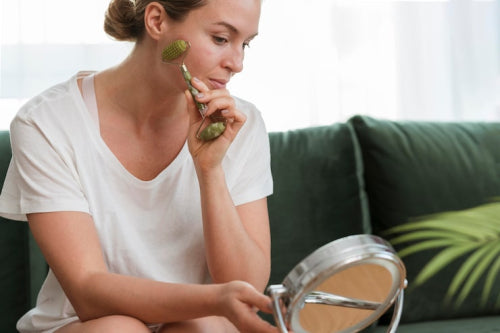
Picture this: you're gliding on a layer of your go-to blush, only for that telltale itch to ignite, turning what should be a confidence boost into a frantic scrub-off. For countless individuals worldwide, skin sensitivity isn't an occasional nuisance it's a daily battle waged against the invisible aggressors lurking in conventional cosmetics. Enter the vegan beauty revolution, where innovative brands are redefining the game with formulations that deliver bold coverage and radiant finishes without the backlash. In our exploration of How Vegan Beauty Brands Are Addressing Skin Sensitivity, we uncover how this shift is not merely a passing phase but a robust response to escalating consumer demands for safer, more ethical skincare solutions.
Many women feel trapped by makeup that hides flaws but risks irritation and hidden toxins. This daily choice weighs heavily, dimming confidence over time. Liht Organics invites you to embrace beauty differently. With up to 90% USDA-certified organic ingredients, our vegan, cruelty-free products deliver vibrant color and gentle care, letting you glow with confidence, knowing your skin is nurtured, not compromised. Shop Now!
The Rising Tide of Skin Sensitivity Challenges
Behind the polished veneer of social media perfection lies a stark reality: skin sensitivities are on the ascent, affecting millions and reshaping beauty habits globally. Conditions such as eczema, rosacea, and contact dermatitis have surged, often exacerbated by environmental pollutants, stress, and critically the synthetic ingredients embedded in everyday makeup and skincare. Experts in dermatology note a marked uptick in consultations for reactions to common culprits like parabens, sulfates, and synthetic fragrances, once cornerstones of cosmetic formulation but now increasingly viewed as unnecessary risks.
This phenomenon carries substantial economic weight. Consider the U.S. organic personal care products market, which reached USD 6.31 billion in 2024 and is forecasted to expand at a compound annual growth rate (CAGR) of 9.5% through 2030. This surge stems from a growing recognition among American consumers of the health hazards posed by synthetic chemicals, including parabens and sulfates, alongside a burgeoning appreciation for the advantages of plant-derived, cruelty-free components. The rise in prevalent skin ailments like eczema and rosacea has only intensified the call for gentle, additive-free alternatives that prioritize skin health over superficial appeal.
The issue transcends borders, resonating deeply in high-innovation zones such as the United Arab Emirates, Singapore, and India, where diverse climates from arid deserts to tropical humidity compound vulnerability. In Saudi Arabia and Malaysia, where beauty rituals intertwine with cultural traditions, the quest for non-irritating options has sparked a fervor for products that align with both heritage and modernity. Australia's sun-drenched lifestyles demand robust yet soothing defenses, while the U.S. grapples with urban stressors amplifying allergic responses. Platforms like Instagram and TikTok amplify these stories, with users in these regions sharing raw, unfiltered accounts of their journeys toward calmer complexions.
Globally, the natural skin care products market underscores this pivot, valued at USD 6.7 billion in 2021 and poised to climb to USD 11.87 billion by 2030, achieving a CAGR of 6.6% from 2022 onward. At its core is an amplified consciousness regarding the detrimental impacts of chemicals on the skin, including irritation and loss of vitality. Europe holds sway with more than 33.2% of the revenue in 2021, reflecting a mature embrace of sustainable practices. Yet Asia-Pacific emerges as a powerhouse, anticipating a 6.8% CAGR over the same period, as shoppers in nations like India and Malaysia abandon harsh formulas for botanical-based elixirs that foster luminosity sans the sting.
Within this landscape, the mass segment dominates with 71.9% of the market in 2021, making natural options accessible to a broad audience, while facial care commands 71.8% of revenues, highlighting the priority placed on targeted, sensitivity-focused treatments. Recent moves, such as Kosmea's 2021 entry into India with certified organic rosehip oils, illustrate how brands are tailoring solutions to regional needs, bridging gaps in understanding and building trust through transparent ingredient sourcing.
Vegan Beauty's Transformative Role
Vegan beauty transcends dietary choices; it represents a principled stand against animal-sourced components that frequently harbor hidden irritants, such as lanolin from sheep's wool or beeswax from hives. By eliminating these, brands unlock pathways to superior tolerability, particularly for those with reactive skin. The global vegan cosmetics market, pegged at USD 15.17 billion in 2021, is set to surge to USD 26.16 billion by 2030, propelled by a 6.1% CAGR from 2022 to 2030. Fueling this trajectory is the global swell of vegan-minded consumers, who reject animal exploitation and demand formulations devoid of such elements.
Europe led with over 36.81% market share in 2021, but Asia-Pacific is accelerating fastest at a 7.4% CAGR, mirroring the vibrancy in markets like Singapore and the UAE. Skincare captures 34.01% of the sector in 2021, emphasizing gentle actives such as aloe and chamomile that soothe rather than inflame. Specialty stores, accounting for 35.7% of distribution, serve as vital touchpoints, as seen in outlets like Faces in the UAE or The Green Collective in Singapore, where curated selections educate on vegan efficacy.
At the forefront are brands engineering high-performance makeup boasting more than 80% clean, organic ingredients compositions so pure they're virtually edible, while simultaneously nurturing the skin beneath. Manufactured in precision locales like the USA and Singapore, these offerings merge longevity with benevolence, ensuring a flawless finish that endures without evoking distress. Initiatives like Colorbar's 2022 vegan nail lacquer launch in India exemplify this fusion, extending accessibility and sparking conversations on platforms like TikTok, where quick demos from Malaysian creators go viral, demystifying benefits for skeptical viewers.
Emollients, those vital moisturizing agents, exemplify this ingenuity. The global emollients in personal care market stood at USD 4,871.0 million in 2024, with projections to USD 6,820.3 million by 2033 via a 3.8% CAGR from 2025. This expansion is anchored in consumer's affinity for versatile skincare that blends aesthetic enhancement with therapeutic relief. Asia-Pacific commands 32.9% of revenues in 2024, with China eyeing a 4.3% CAGR; notably, the green, plant-derived variants lead at 72.5% share and a brisk 4.1% growth rate.
Such plant-based emollients, free from petroleum derivatives, provide a supple barrier that wards off dehydration without clogging pores a boon in dry climates like Saudi Arabia's. BASF's March 2025 unveiling of a renewable lipid emollient underscores ongoing advancements, enhancing sensory appeal while upholding sustainability. Evonik's May 2024 expansion in Asia-Pacific further democratizes these ingredients, empowering brands to craft inclusive lines that resonate from Sydney's beaches to Mumbai's monsoons.
Navigating Ingredient Transparency
Deciphering a cosmetic label can resemble unraveling an ancient script, fraught with arcane terms that breed confusion and erode confidence. For many prospective buyers, the primary deterrents are a lack of comprehension regarding product composition and insufficient details on components coupled with lingering distrust from past greenwashing episodes. Vegan pioneers counter this adeptly, deploying clear narratives that illuminate the virtues of elements like green tea for anti-inflammatory prowess or shea butter for natural lipid replenishment, sans animal ties.
This forthrightness is pivotal in overcoming barriers. In natural skincare's mass appeal 71.9% in 2021 facial regimens prevail at 71.8%, with women comprising 77.7% of users, drawn to provenance tales from California's organic orchards to Southeast Asia's verdant estates. Retailers such as Namshi in the UAE or Gold Apple exemplify this, not merely vending but versing through glossaries and in-store demos that convert curiosity into conviction.
Moreover, efficacy cements allegiance. Contemporary vegan products proffer extended wear up to 12 hours infused with dermal-nourishing bonuses, envision a balm that moistens as it colors or a base that preps sans provoking eruptions. Emphasizing over 80% organic actives, these circumvent the "unfamiliarity" objection, affirming that vegan equates to upliftment, not concession. TikTok's bite-sized breakdowns, from Australian hauls to Indian unboxings, distill complexities into digestible insights, fostering trust via communal validation.
In the UAE and Saudi Arabia, where luxury intersects with discernment, these narratives thrive on Instagram, with influencers parsing labels live, addressing "ingredient opacity" head-on. Similarly, Singaporean and Malaysian feeds buzz with user-generated content, transforming potential skeptics into advocates by spotlighting real-world resilience in humid havens.
Regional Dynamics and Distribution Shifts
Viewed through a wider lens, vegan beauty's sensitivity solutions manifest universally yet adapt locally, harmonizing global metrics with intimate narratives. North America, with its 6.5% CAGR, contends with hectic rhythms and idealized aesthetics, where U.S. organics flourish via eco-conscious packaging and digital commerce. Australia's formulations, engineered for UV fortitude, cater to a populace craving non-stinging safeguards, aligning with reef-friendly ethos.
Asia-Pacific commandeers attention with 7.4% vegan growth, attributable to escalating affluence and enlightenment in India and Malaysia, where ancestral spices like turmeric integrate with cutting-edge vegan science. The UAE and Saudi Arabia's affluence-innovation nexus sees specialty stores 35.7% share overflowing with premium imports that lavish without lacerating.
Online channels accelerate this, boasting an 8.8% CAGR as geographical confines dissolve. Singapore's intuitive platforms to India's dynamic digital souks ensure equitable access to this ameliorative wave. It's an intricate weave of victories, where aggregate data intersects personal testimonies your dermis, their diligence.
Recent strides, like Victoria's Secret's 2021 India e-store debut, amplify this, blending accessibility with education to quell informational voids and fortify faith.
Building Enduring Credibility
Credibility accrues incrementally, layer upon layer. Vegan entities excel by claiming their chronicle: independent validations, traceable supply chains from field to facade, and an aversion to exaggeration. When queries surface "What precisely is this?" they retort with unvarnished verity, elucidating how an 80% organic matrix evades provocateurs yet delivers vibrancy and endurance.
Peer endorsement magnifies this. Instagram vignettes from zonal users luminous endorsements spanning Sydney to Riyadh pierce cynicism. TikTok provocations beckon collaborations: "Reveal your tender triumph." This communal ethos supplants "distrust" with "transformative."
The recompense? A sector burgeoning luminously natural skincare attaining USD 11.87 billion by 2030 at 6.6%, facial primacy intact. Green emollient's tide guarantees plushness complements polish, an equilibrium indispensable and exquisite.
Updates like Tru Fragrance's January 2025 acquisition of Lake & Skye signal consolidation, broadening retail reach and reinforcing organic commitments amid sensitivity surges.
Embracing a Gentle Future
As synthetic dominance wanes, vegan beauty solidifies as bedrock quite literally. For the tender-skinned cohort, it's beyond cosmetics; it's clemency in a vessel, a murmur of "this is yours" amid clamor. With sectors ballooning from American cores to peninsular expanses, and breakthroughs like lipid emollients charting courses, the dictum rings true: allure can mend as it magnifies.
The next application? Halt and assess: ally or adversary? The vegan phalanx urges selection of comrade tender, verdant, quintessentially you. In an unsparing realm, must your epidermis endure the fray?
Frequently Asked Questions
Why are vegan beauty products better for sensitive skin than conventional cosmetics?
Vegan beauty products eliminate animal-sourced ingredients like lanolin and beeswax that often contain hidden irritants, making them more tolerable for reactive skin. These formulations avoid common synthetic culprits such as parabens, sulfates, and synthetic fragrances that frequently trigger conditions like eczema, rosacea, and contact dermatitis. With over 80% clean, organic ingredients, vegan cosmetics provide gentle yet effective coverage while nourishing the skin beneath.
What ingredients should I look for in vegan skincare for sensitive skin?
Look for plant-based emollients and soothing botanical actives like aloe vera, chamomile, green tea, and shea butter in vegan skincare products. These ingredients provide anti-inflammatory benefits and natural lipid replenishment without petroleum derivatives that can clog pores. Green tea offers anti-inflammatory properties, while plant-derived emollients create a protective barrier against dehydration, especially beneficial in harsh climates.
How fast is the vegan beauty market growing, and why are more people switching?
The global vegan cosmetics market is experiencing rapid growth, expanding from $15.17 billion in 2021 to a projected $26.16 billion by 2030 at a 6.1% CAGR. This surge is driven by increasing skin sensitivities affecting millions worldwide, growing consumer awareness of synthetic chemical risks, and demand for cruelty-free alternatives. The Asia-Pacific region is leading growth at 7.4% CAGR, while Europe maintains the largest market share at over 36%.
Disclaimer: The above helpful resources content contains personal opinions and experiences. The information provided is for general knowledge and does not constitute professional advice.
You may also be interested in: The Hidden Dangers of Carmine in Makeup Colorants: Embracing
Many women feel trapped by makeup that hides flaws but risks irritation and hidden toxins. This daily choice weighs heavily, dimming confidence over time. Liht Organics invites you to embrace beauty differently. With up to 90% USDA-certified organic ingredients, our vegan, cruelty-free products deliver vibrant color and gentle care, letting you glow with confidence, knowing your skin is nurtured, not compromised. Shop Now!
Powered by flareAI.co
شاركي
You May Also Like
-

Discovering Self-Love Through Clean Beauty: A Guide to Nurturing Your Inner and Outer Self
In the journey of self-love, every action, thought, and choice we make towards ourselves can be a powerful affirmatio...
-

The Science Behind Organic Makeup and Pregnancy: A Gentle Choice for Moms-to-Be
wp:paragraph Pregnancy is a wonderful and exciting journey that comes with added responsibilities of ensuring the ...
-
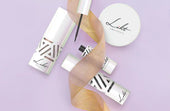
Liht Organics Black Friday: Enhance Your Beauty Routine with Vegan, Organic, and Natural Essentials!
As the holiday season approaches, there’s a sparkle in the air, and we at Liht Organics are thrilled to add a touch o...
-

Organic Makeup That Heals As It Conceals
Liht Organics Empowers Women With Only The Best For Their Beauty NeedsLiht Organics combines the best of both worlds:...
-
![[FEATURE] Liht Organics to debut at TFWA Asia Pacific show](//lihtorganics.com/cdn/shop/articles/1_1.png?v=1759328400&width=170)
[FEATURE] Liht Organics to debut at TFWA Asia Pacific show
‘Organic makeup that’s safe enough to eat’ — Liht Organics to debut at TFWA Asia Pacific show by Hannah Tan | 24 Apri...
-
![[FEATURE] The Singapore-based organic makeup brand is a first-time exhibitor at this year’s TFWA Asia Pacific Exhibition in Singapore in May 2025](//lihtorganics.com/cdn/shop/articles/2_1.png?v=1759328386&width=170)
[FEATURE] The Singapore-based organic makeup brand is a first-time exhibitor at this year’s TFWA Asia Pacific Exhibition in Singapore in May 2025
TFWA Asia Pacific preview: Liht Organics targets expansion in travel retail By DFNI Staff Writer The Singapore-bas...
-
![[FEATURE] Travel Retail Awards 2025 finalists - Best Make-up Product Color-Intense Liquid Lipstick – Liht Organics](//lihtorganics.com/cdn/shop/articles/4_e2f54f0f-fcd1-46e7-9990-fc9d29e35131.png?v=1759328382&width=170)
[FEATURE] Travel Retail Awards 2025 finalists - Best Make-up Product Color-Intense Liquid Lipstick – Liht Organics
Revealed: Travel Retail Awards 2025 finalists By Trbusiness Editor | Wednesday, 23 July 2025 15:21 TRBusiness is th...
-
![[FEATURE] Liht Organics targets expansion in travel retail](//lihtorganics.com/cdn/shop/articles/3_1.png?v=1759328346&width=170)
[FEATURE] Liht Organics targets expansion in travel retail
Organic makeup that’s safe enough to eat: Liht Organics targets expansion in travel retail By Laura Shirk Liht Organ...
-

[FEATURE] Gulf News: TikTok’s strawberry girl makeup trend: How to achieve that rosy glow inspired by Hailey Bieber
Berry, berry, strawberry, love strawberry, like BTS’s J-Hope, the band’s strawberry enthusiast once said. If only we ...
-

[FEATURE] Gulf Business Magazine : Liht-ing it up
Our founder, Nerissa Low was interviewed by Gulf Business, where she discussed her experience launching Liht, an orga...
-

[FEATURE] Daily Vanity: 11 local beauty brands owned by women – you’d be surprised how many of them started in their kitchens!
When we give a shout-out to homegrown beauty businesses, we aren’t just doing it for the sake of supporting local. Th...
-

[FEATURE] Entrepreneur ME : UAE-Based Liht Organics' Nerissa Low On Crafting An Organic Makeup Brand For The Skin-Conscious Consumer
As is the case with the origin stories of so many startups out there, Liht Organics came into being after its founder...
-

Mother, Baby & Child Editor’s Pick: Liht Organics Lights the Way
Excited to be the Mother, Baby & Child’s ‘Editors pick’ for their choice of Beauty brand.The article outlined the...
-

[FEATURE] EmiratesWoman - 8 Fabulous things to do in Dubai this weekend
by SARAH JOSEPHJANUARY 20, 2023Try the UAE’s first virtual reality makeup podium The popular VR-backed makeup exper...
-

Nerissa Low of Liht Organics On The Self-Care Routines & Practices Of Busy Entrepreneurs and Business Leaders
By Maria Angelova, CEO of Rebellious Intl.Date: 4 January, 2023Nerissa Low of Liht Organics On The Self-Care Routines...
-

Liht Organics: Meet the beauty brand that has caught the eye of the Royal Family of Bahrain
By Crystal Lee Digital Editor28 May 2021The world of clean beauty is, ironically, rather murky.That’s because the ter...
-

The latest luxury makeup and skincare drops, including serums, concealers, moisturisers and more
Allisa Noraini21 May, 2021It’s fine to splurge in the name of beauty. This new range of makeup and skincare drops are...
-

These SG Beauty Bosses Are Conquering The World Despite The Pandemic
First Singapore, then the US, China, Germany, Dubai, UK, South Korea, Malaysia, Hong Kong, Thailand, Australia… By...
-

Nerissa Low, Founder at Liht Organics
Written by Callum LaingPosted on December 26, 2020 10 min readNerissa Created Organic Makeup That Actually Improve...
-

Liht Organics – Makeup That Makes You
At Liht Organics, our mission is simple – to provide women (and men) with a safe experience when it comes to beauty s...
-

Why Should We Use Organic Makeup?
We cannot deny that cosmetics is one of our beauty essential item – it enhances our looks and conceals our flaws. Man...
-

Organic makeup and why your skin will love it: Liht Organics founder
By Jolene,July 27, 2020 |7 mins readOrganic make up in Singapore is a trend that is fast-catching on here as we becom...
-

[FEATURE] DC EDIT – Makeup & Confidence: Talking Self-love With Liht Organics’ Founder Nerissa Low
Makeup and confidence — the long, drawn-out fight that many of us have grappled with personally. I’m sure I’m not the...
-

[FEATURE] THE FEMALE CULTURE – I TRIED LIHT ORGANICS AND THIS IS HOW IT WENT
I’m a huge fan of makeup and I love testing out new products so I was pretty excited to get my hands on Liht Organics...
-

[FEATURE] SINGAPORE MOTHERHOOD – The Best Organic and Natural Skincare and Makeup for Pregnant and Breastfeeding Mums in Singapore
Pregnancy is a hormone-volatile period for women. One place where this makes itself seen and felt is on the skin. Som...
-

[FEATURE] AFTER CLINIC HOURS – 21 Back to Beauty Deals in Singapore (2020)
With spas and salons shuttered island wide for two months, I never thought I’d be this desperate for a good old’ Swed...
-

[FEATURE] KUL AL USRA MAGAZINE JUNE 2020
Choosing Pinks & Oranges this summer!Featured: Moisture Burst Lip Glaze in Pink Cupcake.
-
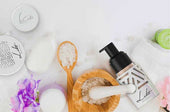
[FEATURE] Award-winning Organic Makeup Brand Liht Organics Gives Back to the Community & Environment During COVID-19
Singapore’s First Organic Makeup Brand with 100% Natural Makeup That Is Safe Enough to Eat Liht Organics promises org...
-

[FEATURE] COSMETICS DESIGN ASIA – COVID-19 ‘WAKE-UP CALL’: SINGAPORE’S LIHT ORGANICS SEES GLOBAL POTENTIAL AMID CLEAN BEAUTY CLAMOUR
Original article at: https://www.cosmeticsdesign-asia.com/Article/2020/06/26/Singapore-s-Liht-Organics-sees-globa...
-

[FEATURE] THE LIFESTYLE COLLECTIVE – BEAUTY SHOULD NEVER BE CRUEL
Date: June 24, 2020Author: Kristen Chen Liht (pronounced as light) Organics is a Singaporean organic makeup brand t...
-

[FEATURE] NÜYOU – 7 ONLINE PLATFORMS TO SHOP FOR CLEAN BEAUTY PRODUCTS
纯净美容(Clean Beauty)的美肤概念,再近几年来越来越受欢迎。随着消费者“爱自己”的美容意识逐步提升,对于用在脸上的所有物品、成分更为关注和讲究。以广义来讲,纯净美容主张使用“干净”成分和无毒配方,让肌肤的可能性损伤减到最小...
-

[FEATURE] COSMOPOLITAN MIDDLE EAST – 3 BENEFITS OF SWITCHING TO ORGANIC BEAUTY PRODUCTS THIS RAMADAN
By Cosmo – May 08, 2020Nerissa Low, founder of Liht Organics, shares the ultimate benefits of going organic this mont...
-

Nerissa Low of Liht Organics: “Seeing Light at the End of the Tunnel; 5 Reasons To Be Hopeful During this Corona Crisis”
Ely Weinschneider, Psy.D.May 8 · 9 min read …It shows us that everyone- whether we are rich or poor, regardless...
-

[FEATURE] AL MARA MAGAZINE APRIL 2020
-

[FEATURE] RetailME April 2020 – Liht Organics Stays Firm On Strengthening GCC Presence
-

[FEATURE] EMARAT AL YOUM NEWSPAPER – 27 MARCH 2020
English Translation:In spring and summer days, women love to have very light makeup in terms of color and texture, ...
-

[ARTICLE] WKND Magazine March 2020 – Know Your Organic Makeup
-

[FEATURE] AVIAMOST DUBAI – March/April 2020
English Translation:Lipstick with organic flowers. Thanks to the rich complex of natural ingredients, the lipstick...
-

[FEATURE] RUSSIAN EMIRATES (MAR/APR ISSUE)
Russian Emirates is a luxury lifestyle and fashion magazine covering information about the UAE, fashion, beauty, j...
-

[FEATURE] – KUL AL USRA MAGAZINE MARCH 2020
GET THE LOOK!
-

[FEATURE] IMAGES Retail ME – Liht Organics Announces GCC-Wide Expansion
Rupkatha Bhowmick Mar 10, 2020 The plan is to reach 75 Liht Organics retail touchpoints by June-July 2020 and touch...
-

[FEATURE] BABY & CHILD SPRING 2020 – NATURAL BEAUTIES
-

[FEATURE] AWQAT DUBAI – Liht Organics: The First Premium Organic Makeup Brand
ENGLISH TRANSLATION:Liht Organics – The First Premium Organic Makeup Brand Liht Organics, a premium organic beauty ...
-

[FEATURE] FRIDAY MAGAZINE – THE RETRO EYELINER LOOK
-

[FEATURE] MOTHER BABY & CHILD – VANITY ESSENTIALS – THE BEAUTY EDIT
-

[FEATURE] Masala! Magazine February/March 2020 Issue – Beauty Debut: Liht Organics
-

[Feature] – TimeOut Singapore – The Best Local Beauty and Skincare Brands In Singapore
For full article, click here.
-

[FEATURE] KUL AL USRA MAGAZINE – LIHT UP YOUR WORLD WITH LIHT ORGANICS
[ENGLISH TRANSLATION]Liht Up Your World With Liht OrganicsThe First Premium Organic Makeup Brand To Debut In The Mi...
-

[FEATURE] SINGAPORE TATLER – 9 Local Beauty Brands You Should Know Of
-

[FEATURE] nüyou August 2019 Issue – 15 Faces To Watch
-

[FEATURE] HONEYCOMBERS – Local Beauty Gurus: Singapore Beauty Brands You Need To Know About
-

[FEATURE] The Wellness Insider – Seeing The Liht With Founder Nerissa Low
-

[FEATURE] 联合早报 (LianHeZaoBao) – Women Entrepreneur Awards 2019 Coverage
-

[FEATURE] THE STRAITS TIMES Life – Clean beauty with a Singapore heart
-

Romantic Organic Makeup Looks for Valentine's Day: Tips, Tricks, and Product Picks
Valentine's Day is the perfect occasion to embrace the beauty of organic makeup. At Liht Organics, we believe in the ...
-
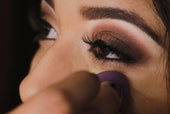
Enhance Your Eyes: A Guide to Eyeliner for Every Eye Shape with Liht Organics
Welcome to the Liht Organics blog, where we believe in celebrating the natural beauty of every eye shape. Today, we'r...
-
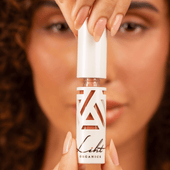
How to do makeup with only lipstick?
At Liht Organics, we believe in the power of clean beauty and the artistry of makeup. Makeup is more than just enhanc...
-

How to Clean Your Makeup Brushes in 6 Simple Steps
Cleaning your makeup brushes may seem like a tedious task, but it's an essential part of your beauty routine. Not onl...
-

Makeup Tips to Help You Look Your Most Flattering on Virtual Meetings!
After more than 2 years of work-from-home arrangement, and possibly hundreds of zoom calls and Google meet virtual me...
-

Learn How to Contour with This Simple Guide for Beginners
Want to take your makeup to the next level? Try contouring to achieve a more defined or sculpted look à la the Kardas...
-
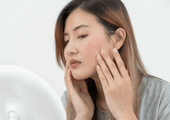
Essential and Easy Makeup Tips for Sensitive Skin
Living with sensitive skin conditions like eczema, psoriasis, and more is already not an easy feat. Throw in makeup t...
-

Raising Your Vibration: A Liht Organics Guide for Empowerment This International Women's Day
wp:paragraph As International Women's Day (IWD) approaches, it serves as a powerful reminder of the journey towards s...
-

The Beauty of Going Bare: Why Sleeping with Makeup is a No-No
Have you ever had one of those nights where you're too tired to clean off your makeup? You might believe, "Skipping...
-

Breast Cancer Awareness: Empower Your Beauty with Liht Organics Makeup
During October, we observe Breast Cancer Awareness Month as a way to unite and bring attention to breast cancer whil...
-

The Hidden Dangers of Carmine in Makeup Colorants: Embracing Healthier and Vegan Options
Makeup has become an integral part of our daily routines, allowing us to express our unique beauty. However, as we pr...
-

How can I ensure that my makeup products are organic and won't harm my skin?
When it comes to makeup, it’s important to be mindful of what you’re putting on your skin. With so many products on t...
-

[FEATURE] HONEYCOMBERS – BEST BEAUTY BUYS IN JULY
by Nicole NithiyahWhat’s hot in our beauty hit list: Honest thoughts and top beauty stories we’re swooning over. As w...
-

Liht Organics Introduces Exclusive Gift Sets: Enhance Your Beauty This Festive Season!
As the holiday season approaches and the year draws to a close, Liht Organics is thrilled to present two enchanting g...
-

Get Spooktacular with the Best Halloween Makeup Ideas using Liht Organics' All-Natural, Vegan, and Cruelty-Free Cosmetics!
With Halloween just around the corner, it’s time to let your creativity shine and transform yourself into a spooky,...
-

Celebrating World Animal Day with Liht Organics: Embracing Natural Cruelty-Free Makeup
wp:paragraph As we observe World Animal Day, the team at Liht Organics takes great pride in honoring our pledge to...
-

Reasons Why You Should Choose Cruelty-Free Cosmetics Instead!
With increasing exposés unveiling the ugly truth behind animal testing that goes on in the beauty industry, it is lit...
-

Celebrate Singles Day with Makeup That Empowers – 22% Off at LIHT Organics!
This Singles Day, treat yourself to beauty that goes beyond skin-deep. At LIHT Organics, we believe makeup is about s...
-

Preparing for the Cozy Beauty of Autumn: A Preview of Your Fall Look
As we bid farewell to the warm, sun-kissed days of summer, it’s never too early to start dreaming about the enchantin...
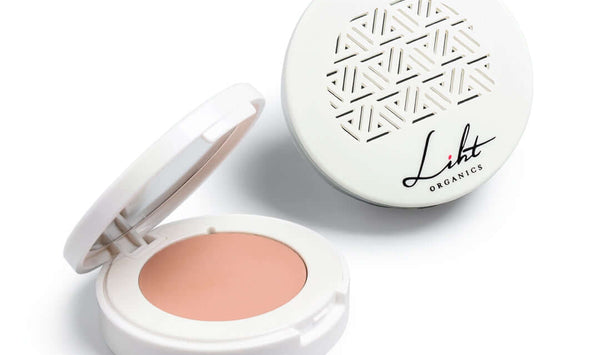
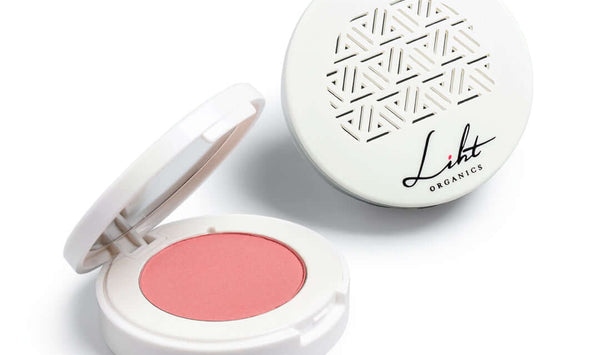
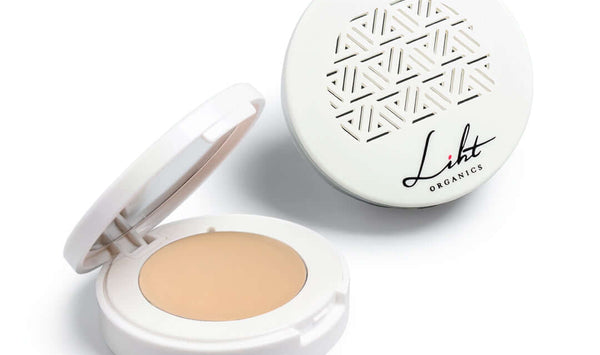
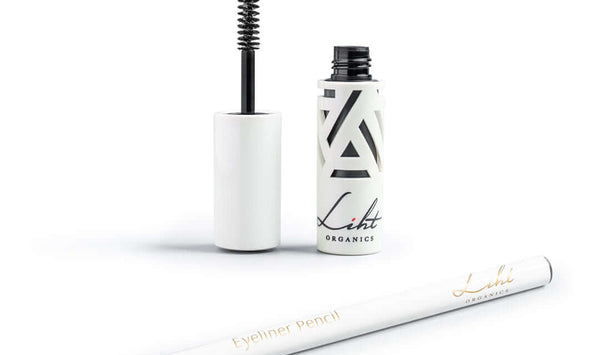
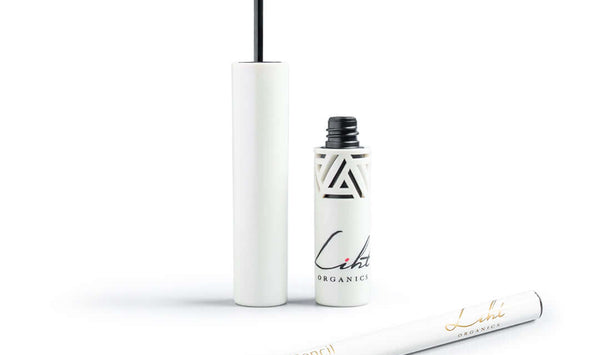
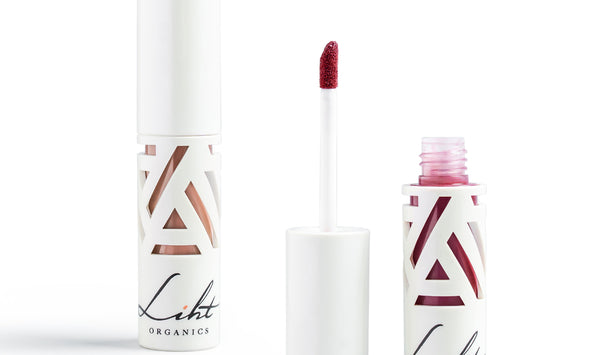
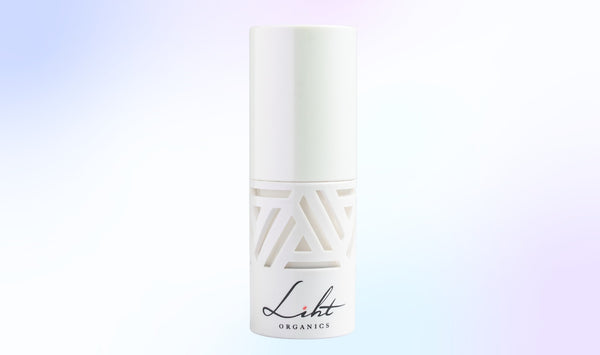
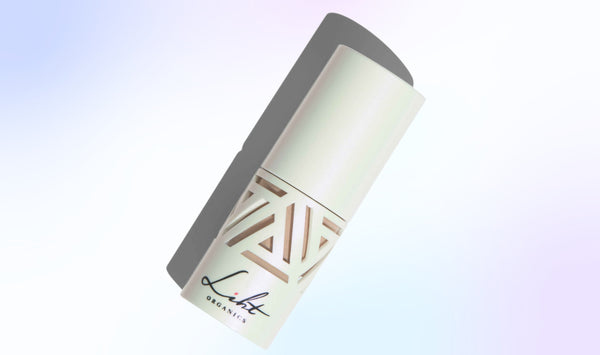
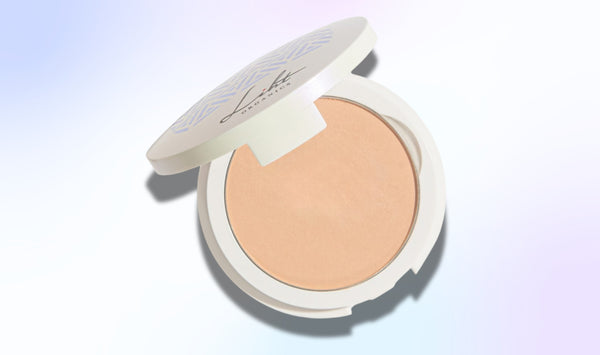
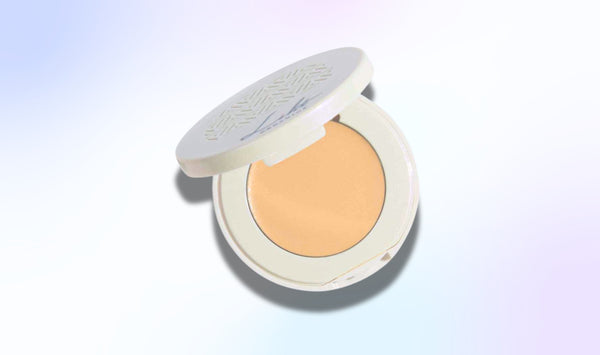
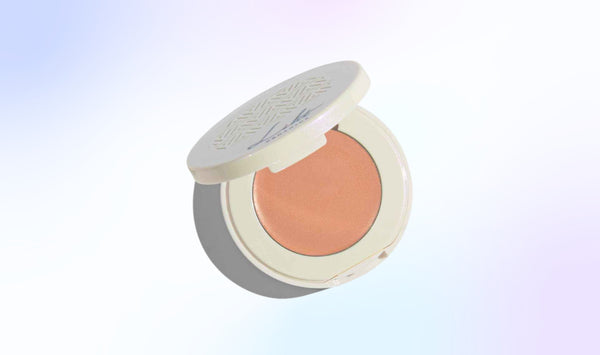
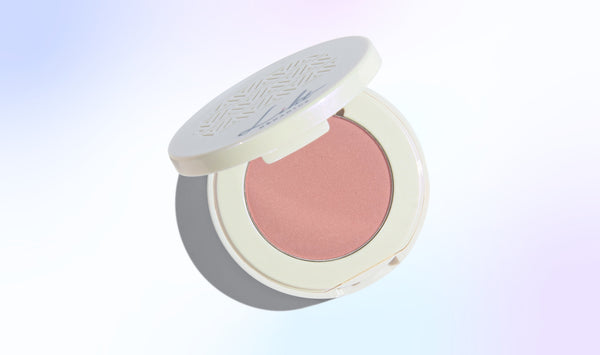
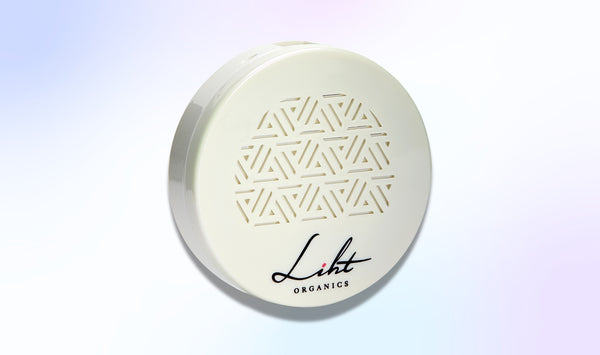
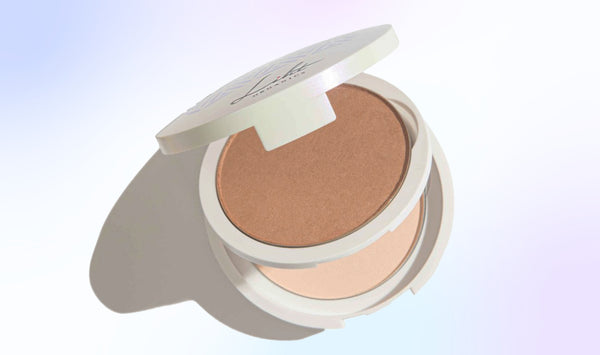
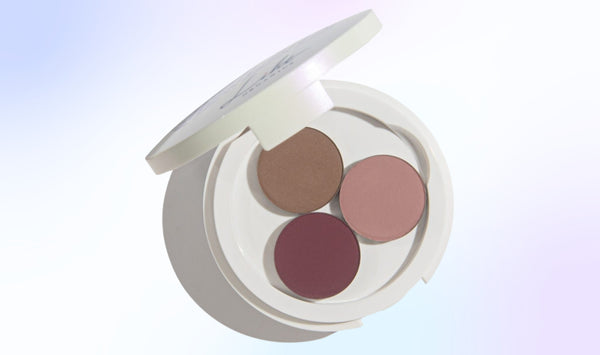
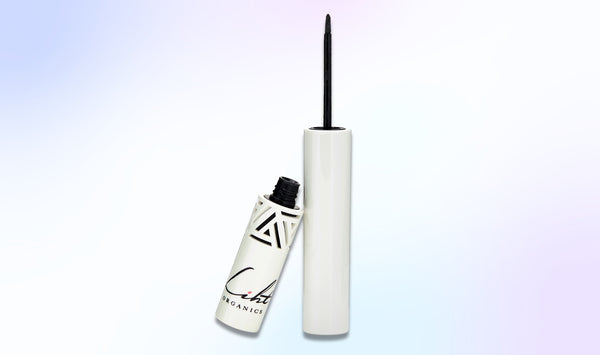
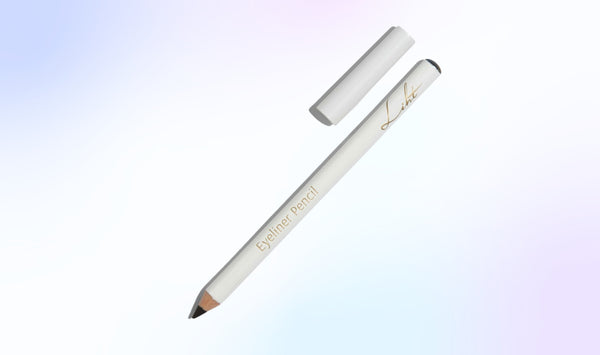
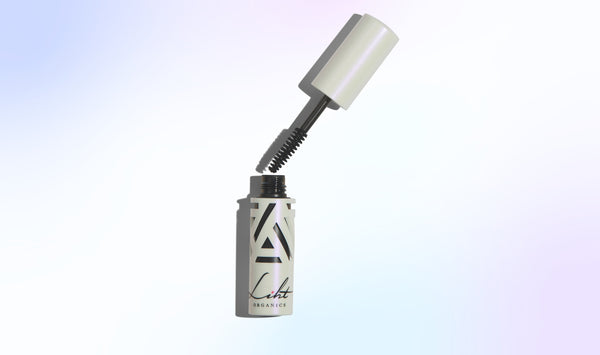
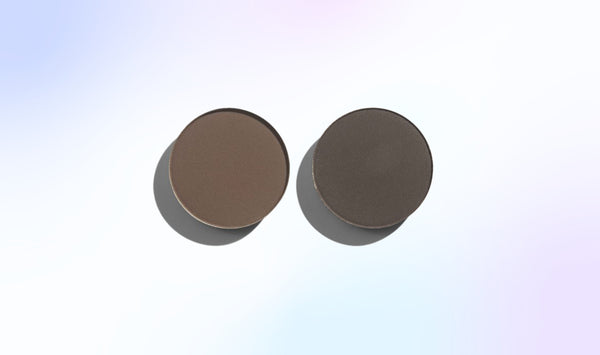
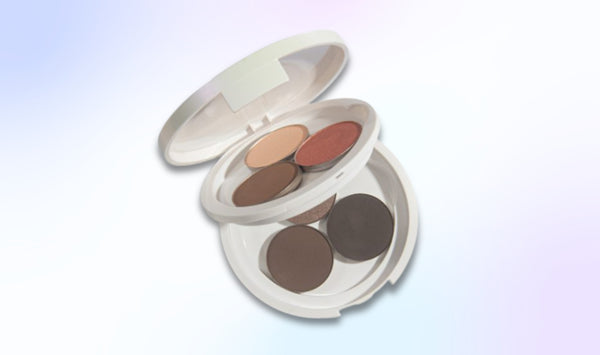
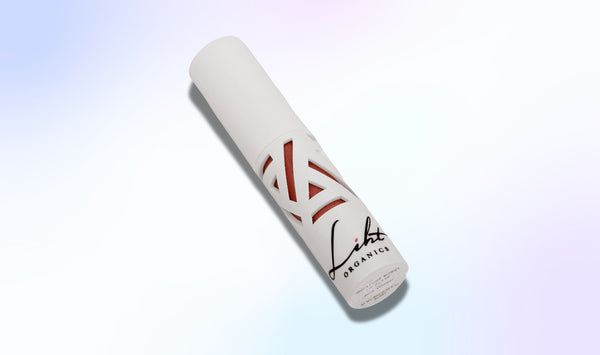
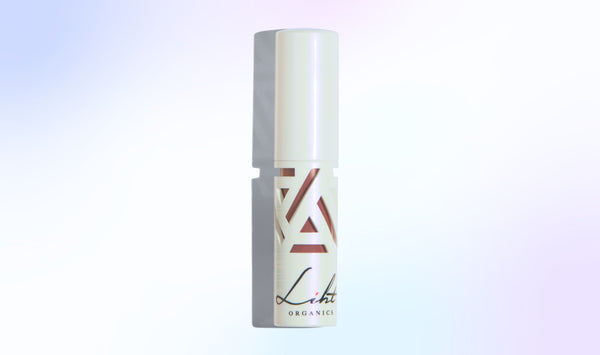
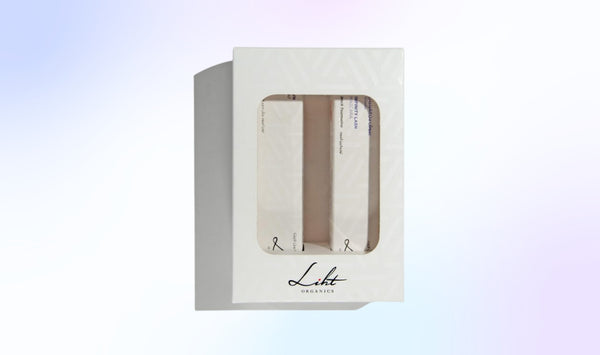
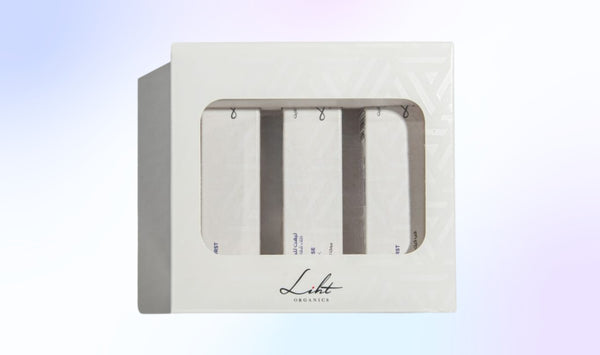
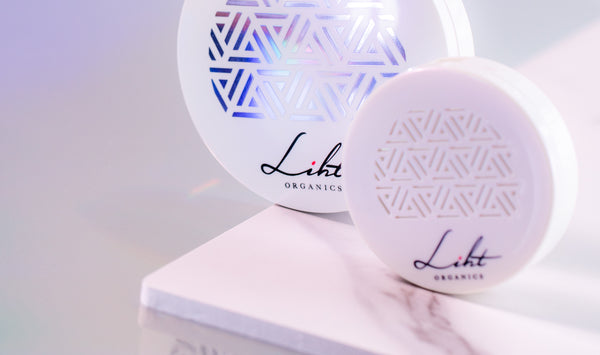
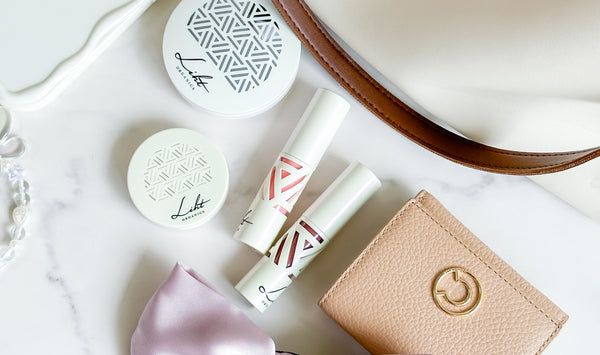
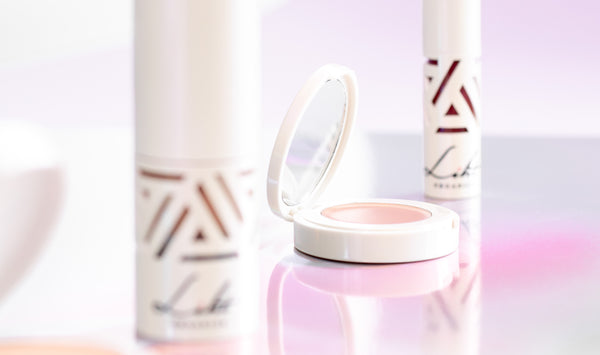




![[FEATURE] Liht Organics to debut at TFWA Asia Pacific show](http://lihtorganics.com/cdn/shop/articles/1_1.png?v=1759328400&width=170)
![[FEATURE] The Singapore-based organic makeup brand is a first-time exhibitor at this year’s TFWA Asia Pacific Exhibition in Singapore in May 2025](http://lihtorganics.com/cdn/shop/articles/2_1.png?v=1759328386&width=170)
![[FEATURE] Travel Retail Awards 2025 finalists - Best Make-up Product Color-Intense Liquid Lipstick – Liht Organics](http://lihtorganics.com/cdn/shop/articles/4_e2f54f0f-fcd1-46e7-9990-fc9d29e35131.png?v=1759328382&width=170)
![[FEATURE] Liht Organics targets expansion in travel retail](http://lihtorganics.com/cdn/shop/articles/3_1.png?v=1759328346&width=170)
































































